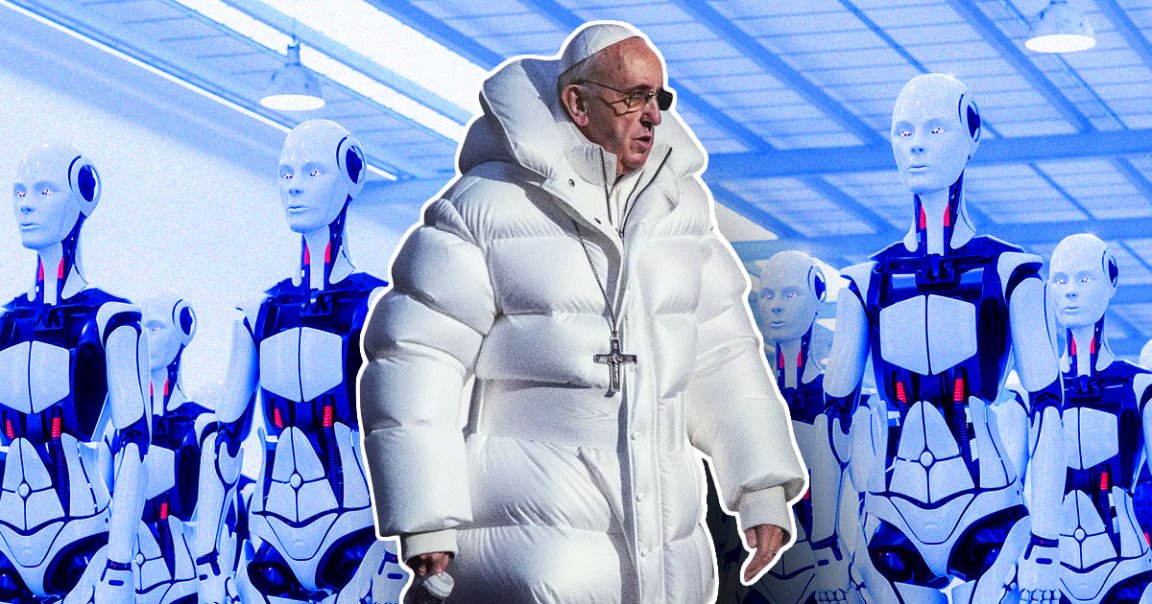
The Pope has released a guidebook on AI ethics. Yes, you heard that right.
The supreme pontiff has partnered with Santa Clara University’s Markkula Center for Applied Ethics to form the Institute for Technology, Ethics, and Culture (ITEC), a body that, according to its website, is designed to convene “leaders from business, civil society, academia, government, and all faith and belief traditions, to promote deeper thought on technology’s impact on humanity.”
Think of it as a Vatican-led AI ethics think tank.
Its first order of business is releasing a handbook, called “Ethics in the Age of Disruptive Technologies: An Operational Roadmap,” meant to help tech companies navigate the many grey areas of AI ethics.
“The Pope has always had a large view of the world and of humanity, and he believes that technology is a good thing,” Father Brendan McGuire, a pastor and ITEC advisor, told Gizmodo. “But as we develop it, it comes time to ask the deeper questions.”
“Technology executives from all over Silicon Valley have been coming to me for years and saying, ‘You need to help us, there’s a lot of stuff on the horizon and we aren’t ready,'” he added. “The idea was to use the Vatican’s convening power to bring executives from the entire world together.”
To be fair, the handbook doesn’t just focus on AI and machine learning. It also covers other topics like encryption, tracking, and facial recognition technologies.
Still, based on the text, the ongoing AI race certainly seems to be its main inspiration.
“Since I have begun meeting and talking with senior representatives of Silicon Valley, especially those working in the area of artificial intelligence and machine learning, I have been impressed by their desire to maintain high ethical standards for themselves and for their industry,” reads an opening chapter of the handbook, penned by the Irish Bishop Paul Tighe.
“This is already clear in the number of initiatives that seek to ensure that technology will be at the ‘service of humanity,’ ‘for good,’ ‘human centered,’ ‘ethical by design,’ and ‘open,'” he added. “This desire to maintain ethical standards reflects both an intrinsic commitment to doing good and a realistic aversion to the risk of reputational damage and long-term commercial harm.”
In other words: business leaders are knowingly using these buzzwords to win trust — and make a buck. But how, exactly, do companies actually follow through with those human-centered and “don’t be evil” promises? And besides, what does this all have to do with the Pope anyway?
Make no mistake — elsewhere in his chapter, Tighe described the handbook as the “fruit of an unlikely cooperation,” and the Catholic Church seems well aware of the fact that their archaic, old-world institution and Silicon Valley couldn’t be more different from each other.
That said, the existence of the ITEC could be seen as a sign of AI’s real and potentially transformational staying power. After all, His Holiness never published a 140-page guidebook on crypto.
It’s also worth noting that the ITEC isn’t pretending that its handbook is an effective replacement for government regulation. While we wait for regulators to jump into action — something that could take quite some time — the Institute says that their guidelines can help burgeoning companies keep consumer health and ethics front and center.
That is if they feel inclined to do so.
“Major guardrails are absolutely necessary, and countries and governments will implement them in time,” Brendan, who reportedly does not know whether the Pope has used ChatGPT, told Gizmodo. “But this book plays a significant role in fast tracking the approach to design and consumer implementation.”
“That’s where we’re trying to enable companies to meet the standards we need way ahead of time,” he added.
More on the Pope and AI: That Viral Image of the Swagged out Pope Is an AI Fake, Dummies